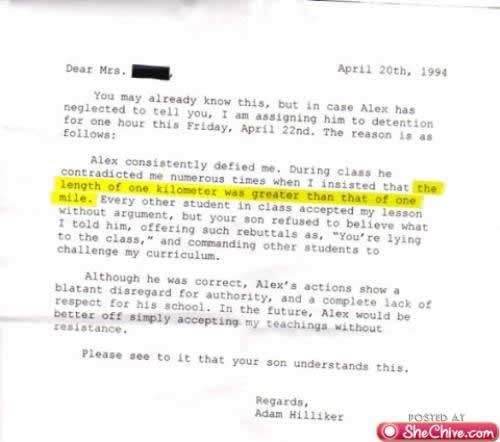Originally Posted By: nmleonQuote:As far as teaching being a skill that can be readily learned from textbooks, you couldn't be further from the truth. Teaching is all about the application my friend. Dealing with 20-30 different personalities and learning styles all at once and making sure it's getting through, well sir that's nothing that can be learned in a textbook.
I tend to agree with you Mike, but apparently the "system" doesn't.
This from the curriculum for a BSE (just cause it was easy to get to).
Child Psychology and Development, Foundations of Education, Assessment in Elementary Education, Children's Literature, Models of Instruction, Music for Elementary Education, Creative Drama, Instructional Planning and Assessment, Mathematics for Elementary Education, Public Speaking, Educational Philosophy, Instructional Technology, Educational Psychology, Diversity Management.
It is my strong suspicion based on MY personal experience that the best teachers especially in the lower elementary grades are "mothers" first and teachers second. I suspect that the skill of teaching a particular subject doesn't really start to come into play until 5th or 6th grade, when students stop being "little kids" and start becoming "young adults".
Just from personal observation, k-2nd grade teachers aren't doing a substantially different job than preschool "teachers", most of whom aren't required to have a degree at all.
Quote:I could give you plenty of examples of excellent students that made lousy teachers, or couldn't handle it.
I'm sure you could give me many examples from personal experience. That in no way affects the validity of the studies above (and more) that show that in general (statistically) the higher the academic ability, the higher the quality of teacher.
That is not only true of teaching, it's true of any profession. The engineer that graduates from MIT with honors will statistically be more qualified than the one that barely graduates from Podunk U (though there will be exceptions to this too). That statistical probability is the reason the MIT graduate will command a higher entry level wage too.
The studies have found that not only do fewer higher academic ability students go into teaching in the first place, a high percentage of those "exceptions" that do, don't last, and the biggest single reason is the lack of ability to advance based on skill instead of seniority.
Quote:One could more easily make the argument that some of the "higher quartile" jobs require skills that can be more easily learned in a textbook.
Yes and in fact they do and can. That is one of the reasons that those higher quartile students go into higher paying professions because they are academically able to.
There's an important piece missing here. People skills. The ability to deal with (other people's) children constantly. If you are a "higher academic ability" student just looking for money, chances are you couldn't cut it as a teacher. I've heard that somewhere around 50% of new teachers leave the profession in the first 5 years. It's not because of the pay - they wouldn't have started in the first place if that were the case - it's because they haven't got what it takes. It's an intrinsic thing, probably impossible to measure. Teachers have this in addition to college-level education.



















